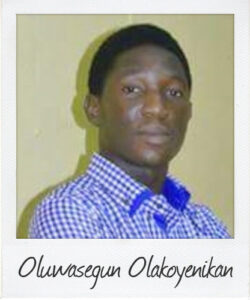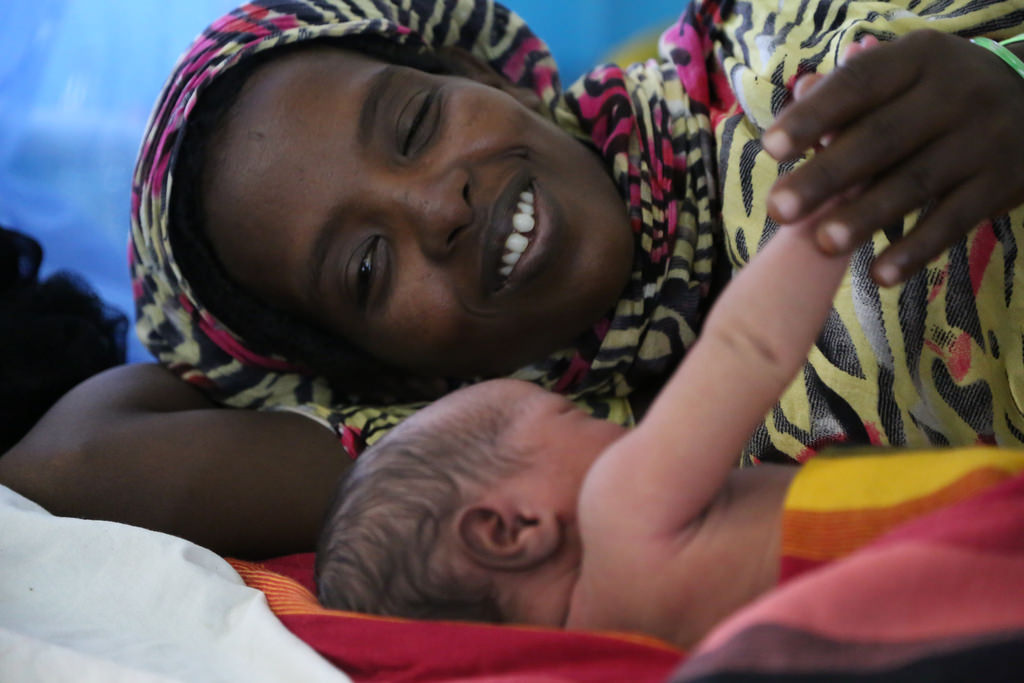“Formal education and FGM: two parallel lines”
April 27th, 2017 Education is perceived to be a tool for unlocking the world of ignorance. But as Oluwasegun Olakoyenikan, 22, a Correspondent from Benin City, Nigeria, writes, studies show no strong connection between level of education and awareness about – or support of – female genital mutilation.
Education is perceived to be a tool for unlocking the world of ignorance. But as Oluwasegun Olakoyenikan, 22, a Correspondent from Benin City, Nigeria, writes, studies show no strong connection between level of education and awareness about – or support of – female genital mutilation.
It was just a few years into her induction as a medical doctor at the Imo State University when she gave birth to her first daughter.
For someone who has attained such education, one would presume the education could have exposed her to various issues of life which affect human well-being.
One such issue includes some age-long social and cultural beliefs, particularly female genital mutilation, which posed negative impacts on past generations. Most of these beliefs have been proved unrealistic through research by academics in various fields.
According to the World Health Organisation (WHO), female genital mutilation (FGM), also known as female genital cutting or circumcision, comprises procedures that involve partial or total removal of the external genitalia, or other injury to the female organs for non-medical reasons.
The WHO and other organisation like United Nations Children’s Fund (UNICEF) and United Nations Population Fund (UNFPA) launched an awareness campaign against the act in 2007 through a joint statement.
The effort made some countries within Middle East, Asia and Africa, in particular Nigeria, enact laws against FGM. Apparently, this has helped reduce the prevalence of the act over time.
However, circumcision of a girl child, which is regarded as violence against girls and women and violation of their human rights, still remains a social norm in certain communities of Nigeria, where the level of education doesn’t deter the residents of these communities from choosing to have the procedure done.
Many have argued that the current awareness on female genital mutilation in Nigeria cannot be tied to one’s level of education as there is no connection between the two. No wonder there are many graduates and highly educated individuals who are not aware of the implications of the act and would follow the tradition if blessed with a female child.
“If I had given birth to a female child before now, I would have circumcised her” said Tolulope, a 22-year old graduate who was sharing her thought before she became aware of FGM.
Tolulope had studied at a tertiary institution for almost half a decade thinking that every child, irrespective of the gender, is circumcised.
According to her “I know it’s cultural to circumcise every child, both male and female. Every child in my house was circumcised. Though I don’t know the reason, but I felt it’s normal to perform the act after birth.”
Following the usual tradition in Tolulope’s home, her mum gave birth to a female child recently and could not resist the need to get the innocent child circumcised. She contemplated at some point whether or not to circumcise the child, but she thought the child would not be happy with her when she grows old, since her elder sisters and mother were circumcised.
The procedure was done by a “health worker” who does female circumcision in her house after her regular hours as a health assistant at a government health facility. The child’s private part was padded and they all went home.
“When we got home, I discovered her eyes were pale, and she wasn’t responsive. We were nervous and didn’t know what to do next because she was dying. I suggested to bath her, while undressing her, I discovered the pad was heavily soaked with her blood,” she said.
It was obvious the girl bled heavily after the cutting and almost died, however this was averted by the swift intervention of their neighbours who rushed the girl to the hospital.
Many lives like that of this young girl have been lost in homes, communities and countries not aware of the complications. They may also hold strong to the belief that FGM is needed to curb sexual behaviour of girls. Some may be aware of the problems around FGM, but the cultural belief they carry from childhood surpasses any professional training or career they grow up to know.
Mrs. Betty, who was a medical student, had to travel from Owerri to Port Harcourt to circumcise her daughter. Despite her training over the years as a medical practitioner, the training seemed not change the cultural belief of circumcision of female children after birth in her town.
In her town, “It is cultural to cut the genital of every female child” she said. It is believed that girls who are not circumcised will be promiscuous while circumcised girls are always faithful to their partners.
“Most ladies having sex with random men are not circumcised, female circumcision promotes chastity and prevents extramarital affair when the girl gets married” said Mrs.Betty.
Just like the mathematicians would say, “two parallel lines don’t meet”. It is evident that in this part of the world, there is no connection between one’s level of education, FGM awareness, and the rationale behind the act.
Reach me on Twitter: @SegunAndrews.
photo credit: UNICEF Ethiopia Health Afar Region FGM New Born via photopin (license)
…………………………………………………………………………………………………………………
About me: I am a citizen journalist trained by the International Centre for Journalists (ICFJ) to report vital health, environment and poverty related issues in the Niger Delta region of Nigeria.
I stepped up in my journalism career with training by the Bloomberg Media Initiative Africa (BMIA) to become a financial, economic and business journalist.
I report economic data, trading sessions from Nigeria Stocks Market and other key financial institutions.
I am a passionate young man who has determined to keep telling the stories behind public data.
…………………………………………………………………………………………………………………
Opinions expressed in this article are those of the author and do not necessarily represent the views of the Commonwealth Youth Programme. Articles are published in a spirit of dialogue, respect and understanding. If you disagree, why not submit a response?
To learn more about becoming a Commonwealth Correspondent please visit: http://www.yourcommonwealth.org/submit-articles/
…………………………………………………………………………………………………………………






